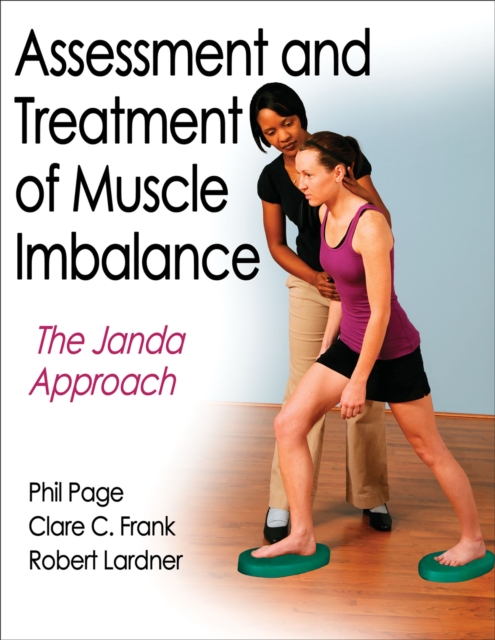
Assessment and Treatment of Muscle Imbalance : The Janda Approach Hardback
by Phillip Page, Clare C. Frank, Robert Lardner
Hardback
- Information
Description
Assessment and Treatment of Muscle Imbalance: The Janda Approach blends postural techniques, neurology, and functional capabilities in order to alleviate chronic musculoskeletal pain and promote greater functionality.
Developed by Vladimir Janda, respected neurologist and physiotherapist , the Janda approach presents a unique perspective to rehabilitation.
In contrast to a more traditional structural view, the Janda approach is functional—emphasizing the importance of the sensorimotor system in controlling movement and chronic musculoskeletal pain syndromes from sports and general activities.
Assessment and Treatment of Muscle Imbalance: The Janda Approach is the only text to offer practical, evidence-based application of Janda’s theories. Filled with illustrations, photos, and step-by-step instructions, Assessment and Treatment of Muscle Imbalance uses a systematic approach in presenting information that can be used in tandem with other clinical techniques.
This resource for practitioners features the following tools: --A rationale for rehabilitation of the musculoskeletal sytem based on the relationship between the central nervous system and the motor system --A systematic method for the functional examination of the muscular system --Treatment processes focusing on the triad of normalization of peripheral structures, restoration of muscle balance, and facilitation of afferent systems and sensorimotor training --The role of muscle imbalance and functional pathology of sensorimotor systems for specific pain complaints, including cervical pain syndrome, upper- and lower-extremity pain syndromes, and low back pain syndromes Assessment and Treatment of Muscle Imbalance provides an evidence-based explanation of muscle imbalance.
The step-by-step Janda system of evaluation is explained—including analysis of posture, balance, and gait; evaluation of movement patterns; testing of muscle length; and assessment of the soft tissue.
The text explores treatment options for muscle imbalance through facilitation and inhibition techniques and sensorimotor training to restore neuromsucular function.
It also includes four case studies examining musculoskeletal conditions and showing how the Janda approach compares with other treatments.
This text combines theory, evidence, and applications to assist clinicians in implementing the Janda approach into their practice. Assessment and Treatment of Muscle Imbalance: The Janda Approach focuses on the neurological aspects of muscle imbalance that are common causes of pain and dysfunction in sports and occupational activities.
By distilling the scientific works of Vladimir Janda into a practical, systematic approach, this unique resource will assist health care providers in treating patients with musculoskeletal complaints as well as exercise professionals in developing appropriate exercise prescription and training programs.
Information
-
In Stock - low on stock, only 1 copy remainingFree UK DeliveryEstimated delivery 2-3 working days
- Format:Hardback
- Pages:312 pages
- Publisher:Human Kinetics Publishers
- Publication Date:28/12/2009
- Category:
- ISBN:9780736074001
Information
-
In Stock - low on stock, only 1 copy remainingFree UK DeliveryEstimated delivery 2-3 working days
- Format:Hardback
- Pages:312 pages
- Publisher:Human Kinetics Publishers
- Publication Date:28/12/2009
- Category:
- ISBN:9780736074001